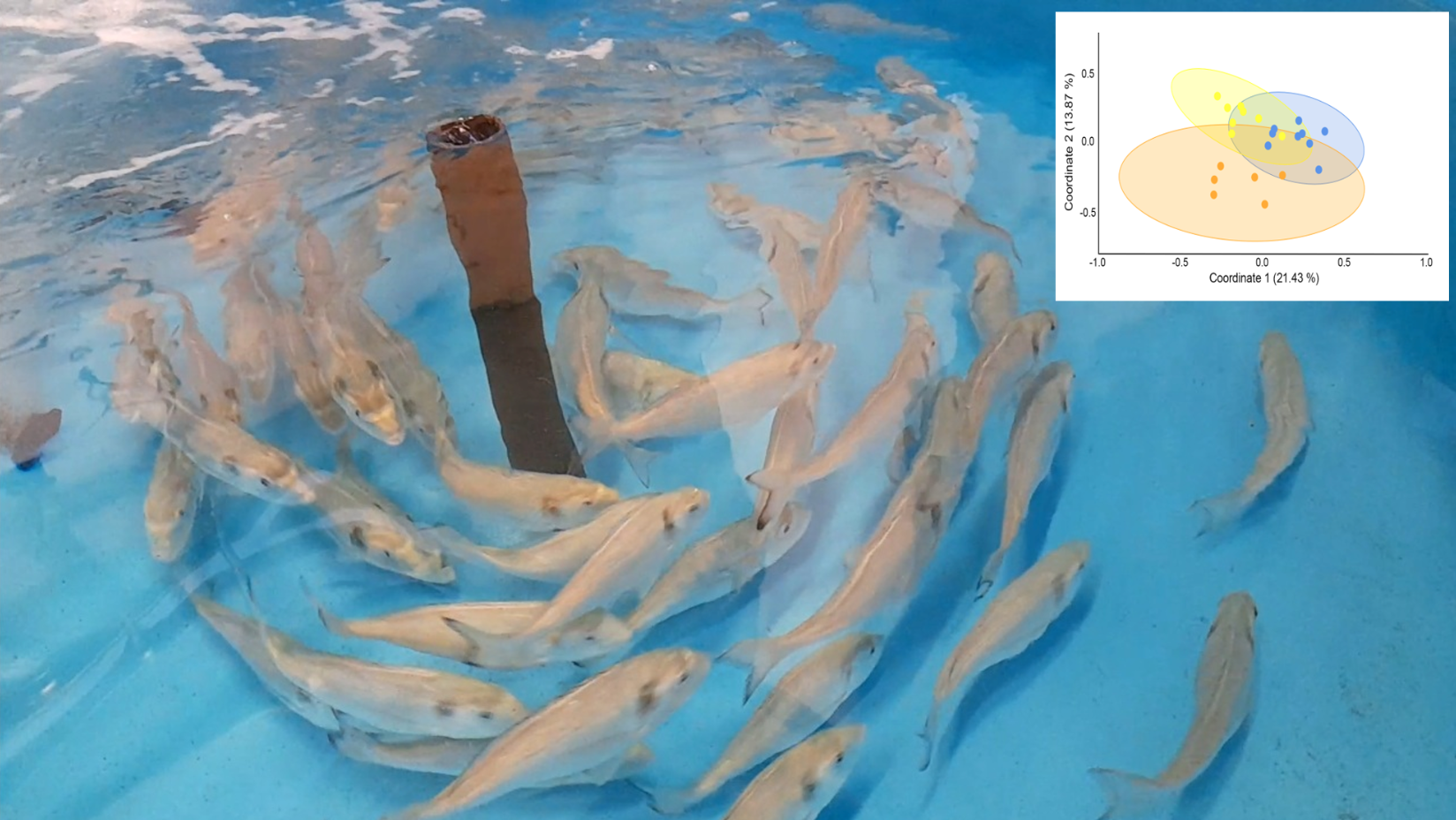B-vitamins make your fish happiness last longer

We evaluated the phytoestrogen genistein (GEN) and one-carbon nutrients (1C) (B-vitamins in this study) in feed as nutritional programming effectors in gilthead seabream. After a short feeding period with these diets, all fish grown the same but diets resulted in different basal levels of cortisol and response to stress, in different hepatic oxidative stress levels, in gut microbiota composition, and interestingly, in behavior. These results have practical implications in aquaculture, in particular for increasing the health status and wellbeing of juvenile seabream and prepare them for stressful periods such as grading, transport, or seeding in sea cages.
While most of these effects fade after 4.5 months on a regular feed, 1C fish were still bolder and GEN fish still exhibited a shyer phenotype. Likewise, 1C and GEN fish still had a different microbiota profile after 4.5 months despite being mixed in the same tanks (water) and being fed the same commercial feed. Both findings constitute first evidences of programming effects at the juvenile stage in seabream on microbiota composition and behavioral traits. It is unknown if such features remain beyond 4.5 months, which is under evaluation, and surely more research is needed to increase the scope of these and other nutritional programming effectors on productive traits. BreamEpiMap is now moving forward to understand the underlying mechanisms.
BreamEpiMap (Grant: PID 2021-128540OAI00) project was funded by MCIN/AEI/10.13039/501100011033 and by “ERDF A way of making Europe”.
Full study freely available at:
https://doi.org/10.1016/j.aquaculture.2024.742063
Citation: Carmen Navarro-Guillén, Rubén Huesa-Cerdán, Juan Antonio Hidalgo-Pérez, Paula Simó-Mirabet, Leandro Rodríguez-Viera, Juan Antonio Martos-Sitcha, G. Martínez-Rodríguez, Erick Perera. One‑carbon nutrients and genistein as nutritional programming effectors in juvenile gilthead seabream (Sparus aurata): Contrasting effects on phenotypic traits, Aquaculture, 2024,
742063, https://doi.org/10.1016/j.aquaculture.2024.742063
También puede interesarte…